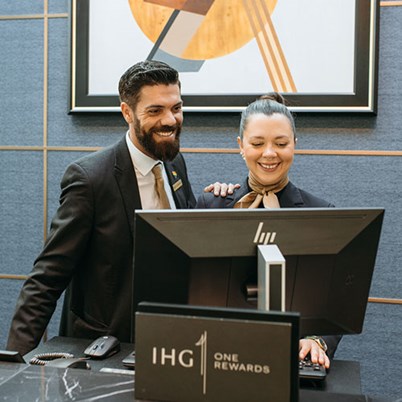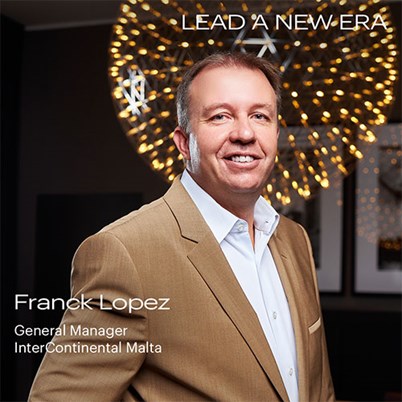Your Mind and Your Money
Money is a touchy subject - we can be afraid to talk about it with colleagues, friends and even family. Financial stress and insecurity can be severely detrimental to our overall wellbeing, and with the cost-of-living crisis that looms over us, it is a particularly taboo topic.
But it shouldn’t be taboo – conversations around mental health and money need to be normalised.
Last week, financial wellbeing expert Val Leeming delivered an insightful seminar to our colleagues on the mental, physical and emotional impact of personal finance.
Let’s dive in…


What is financial stress?
Financial stress arises when money worries are causing anxiety. It may relate to your monthly commitments, difficulty to cope with your debt repayments, or your financial concerns for the future.
Financial stress can impact us mentally, physically, and emotionally, and can affect our working life, our relationships and our overall health.
Why is financial stress on the rise?
The last few years have been very challenging for all of us, and the pressure is real.
On top of a global pandemic, we’re now seeing energy prices rising and the cost of living going up exponentially. This understandably has an impact on our working lives, as well as our relationship with money.
Money and mental health
Both money and mental health are taboo topics and too often we hold back from talking with friends, colleagues or family, which leaves us feeling isolated.
Left unchecked, financial stress can become a vicious cycle: worrying about money makes mental health worse and consequently, poor mental health can make managing financial stress and money a lot harder.
Money mindfulness
In Stoicism, we’re taught that the single most important practice in life is differentiating between what we can change and what we can’t.
We cannot change what is outside our control (global crisis, economy, pandemics etc) but there are plenty of small things in our daily lives and behaviours that we can control. These are the things we should be focusing on.
So, what is money mindfulness all about?
- Becoming aware of your spending habits
- Being intentional and present with how you spend your money
- It’s about asking yourself whether you can afford a particular purchase
- Making a weekly budget is a great way to get money mindful
- Visualising your financial goals will help you in the longer term
The A, B, C of your mind and your money
To help you become money mindful, and move towards better financial - and mental - health, you just need to remember this simple A, B, C.
A: Awareness
- One of the biggest reasons people make mistakes with their money is that they aren’t truly aware of where it goes
- Build awareness of your relationship with money
- Be aware of how money stress is impacting relationships, productivity and health
- Be aware of your money habits and the financial choices you are making
B: Balance
- There is a fine line between positive stress and negative stress (also known as distress)
- Positive stress can motivate us and help us focus our energy, while distress causes anxiety and decreases performance
- It is vital in stress management to attain a balance
- Know how much of the positive stress you can cope with before it turns into distress
C: Cause, communication, and control
- Cause - understand the causes of your financial stress
- Communicate - reach out for support from a friend, partner, or colleague
- Control - remember, you are in control of the way you spend money, and you can change
If you can see it, you can achieve it
The words “just imagine” are powerful, and visualising where you want to be is key to getting there.
- Imagine what you would like to achieve in terms of your financial goals
- Be specific about what you want and visualise it in detail
- Research shows that people who do this increase their saving behaviour by 73%
Q&A
Q: Do you have any advice for how to encourage more openness about financial wellbeing at work?
A: It does take courage and confidence to acknowledge if you are having a financially stressful time, but the IHG community is so open and there are so many resources available for you. You just need to start that conversation and share your worries with a trusted colleague, manager, or HR community.
Q: Do you have any advice on how to handle recurring subscription expenses?
A: We often sign up for subscriptions and forget about them - the vital thing is to go through bank statements with a fine-tooth comb to see where your money is going. Ask yourself whether there are any services you can push pause on. Communicate with your service producer and explain your situation.
Q: Do you have any advice around what strategies you can put in place to be more money mindful?
A: Mindfulness is a practice - you can’t expect that you’re going to be brilliant at it if you haven’t done it before, and it’s okay to fail as long as you start the process. You need to be fully present with whatever finical decisions you’re making. Be aware of the cost of everything. Keep an eye out for impulse buys. Make each purchase work with your personal hourly rate - how long did the item take you to purchase, work wise? Every penny you spend relates to time at work. Small changes can make a big difference.
These recent times have been difficult for us all. If you’re feeling stressed about your finances, don’t be afraid to open conversation with friends, family or colleagues. At IHG, the wellbeing of our team always comes first.
Related stories

What is Hospitality?
Find out the diverse career opportunities and meaningful impact that the hospitality industry offers.

Inspiring teams with a sense of purpose and responsibility
Franck Lopez, Cluster General Manager at InterContinental Malta, reveals why his return to IHG in 2023 was 'inevitable'.

Making a difference and achieving career goals go hand in hand
Helena Jiang shares how the challenges and commitments made during her 30 years' experience in hospitality have truly made a difference and helped her to grow into the leader she is today.
